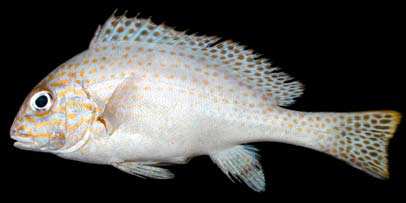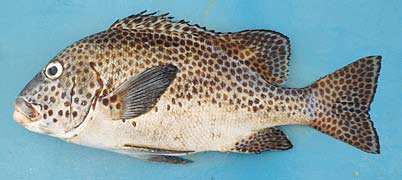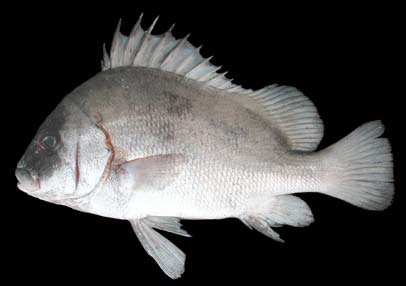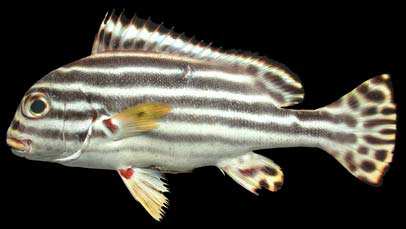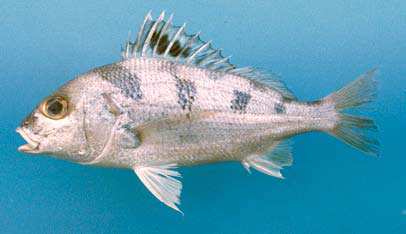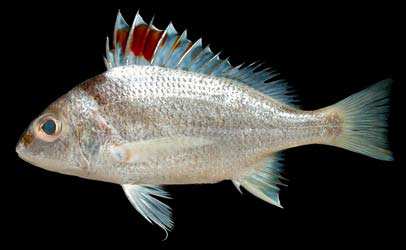HAEMULIDAE
Sweetlips (Grunts)
By Hiroyuki Motomura, Koichi Shibukawa, and Ukkrit Satapoomin
|
Medium-sized (up to 120 cm), oblong and compressed fishes. Lateral line continuous. Head almost entirely scaled, exclusive of lips, chin and tip of snout; mouth small or moderate in size, subterminal; lips thick in Plectorhinchus; chin with distinct pores; hind margin of lachrymal not exposed; opercle with a single spine; teeth conical, forming narrow band in each jaw; teeth on outermost row of jaws enlarged, but not canine-like; palatine toothless; branchiostegals 7. A single dorsal fin with IX-XV strong spines (second spine usually very strong) and 11-26 soft rays; anal fin with III spines and 6-18 soft rays; pelvic fin below base of pectoral fin, with I spine and 5 soft rays; caudal fin truncate or emarginated in adults, rounded in juveniles. Scales small and ctenoid. Vertebrae 26-27. Color: highly variable, appearing characteristic pattern (e.g., banded and spotted) in each species; in many species, juveniles strikingly differ from adult in color. Similar families occurring in the area. Lutjanidae: suborbital area naked; palatine usually toothed. Lethrinidae: no scales on preopercle; dorsal fin with 9-10 soft rays. Nemipteridae: no pores on chin; hind margin of lachrymal exposed. Sparidae: suborbital area naked; preopercular margin not serrated. Remarks. Inhabit coastal waters including reefs, bays, and estuaries, down to about 80 m. Carnivorous, feed on small benthic invertebrates or fishes. Esteemed as food fish, caught by spear, line, and various nets; marketed fresh or salted. |

|
|
